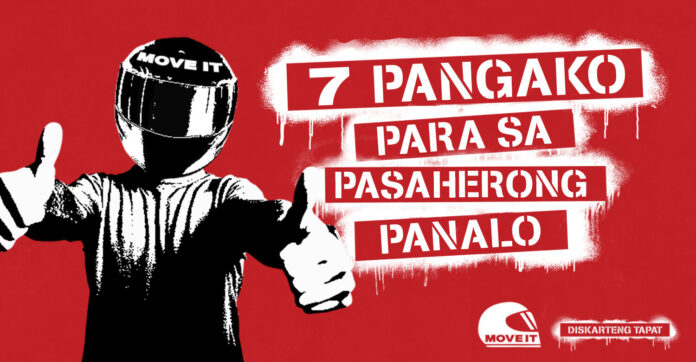Motorcycle taxi firm MOVE IT on Wednesday announced seeking a formal reconsideration of the Land Transportation Franchising and Regulatory Board’s (LTFRB) directive to reduce its rider base nationwide, calling the order a major blow to both its drivers and daily commuters.
In an order issued late on Tuesday, the LTFRB directed MOVE IT to cease operations in Cebu and Cagayan de Oro, and reduce its Metro Manila rider count from 15,000 to just 6,836. The move will effectively delist nearly 14,000 riders—3,000 in each of the two provincial cities and close to 8,000 in the capital.
“This is a big blow to our riders’ livelihood, especially on the eve of Labor Day,” said MOVE IT general manager Wayne Jacinto in a statement. “We are filing a motion for reconsideration within the day and are appealing to the Department of Transportation Secretary. We are hoping that our riders will not lose their livelihood.”
Jacinto argued that MOVE IT has remained compliant with the guidelines set by the Motorcycle Taxi Technical Working Group (TWG) in November 2020, which allocated 15,000 riders each for the three authorized pilot operators—MOVE IT, Angkas, and JoyRide.
“We have repeatedly said this—we never went beyond what was stated in the guidelines,” he added, disputing allegations of over-deployment.
MOVE IT has been operating in Cebu and Cagayan de Oro with 3,000 riders each since early 2023. However, the LTFRB’s recent order claims the company has no authority to operate in these areas—an assertion Jacinto contests by citing the TWG’s allowance of 3,000 riders per operator outside Metro Manila.
The company also raised concerns about the broader impact of the ruling on commuters and industry balance. “We want equal treatment for all players and continuity for our riders’ honest livelihood,” Jacinto said, highlighting the logistical dilemma of accommodating displaced drivers amid capped rider allocations.
“Every MC taxi operator has already reached its allocation limit. Where do we put the 8,000 displaced riders from NCR? Who decides which families go hungry?” he added.
The appeal places regulatory focus on the future of the motorcycle taxi industry, with potential implications for daily transportation access and employment in key urban centers.







